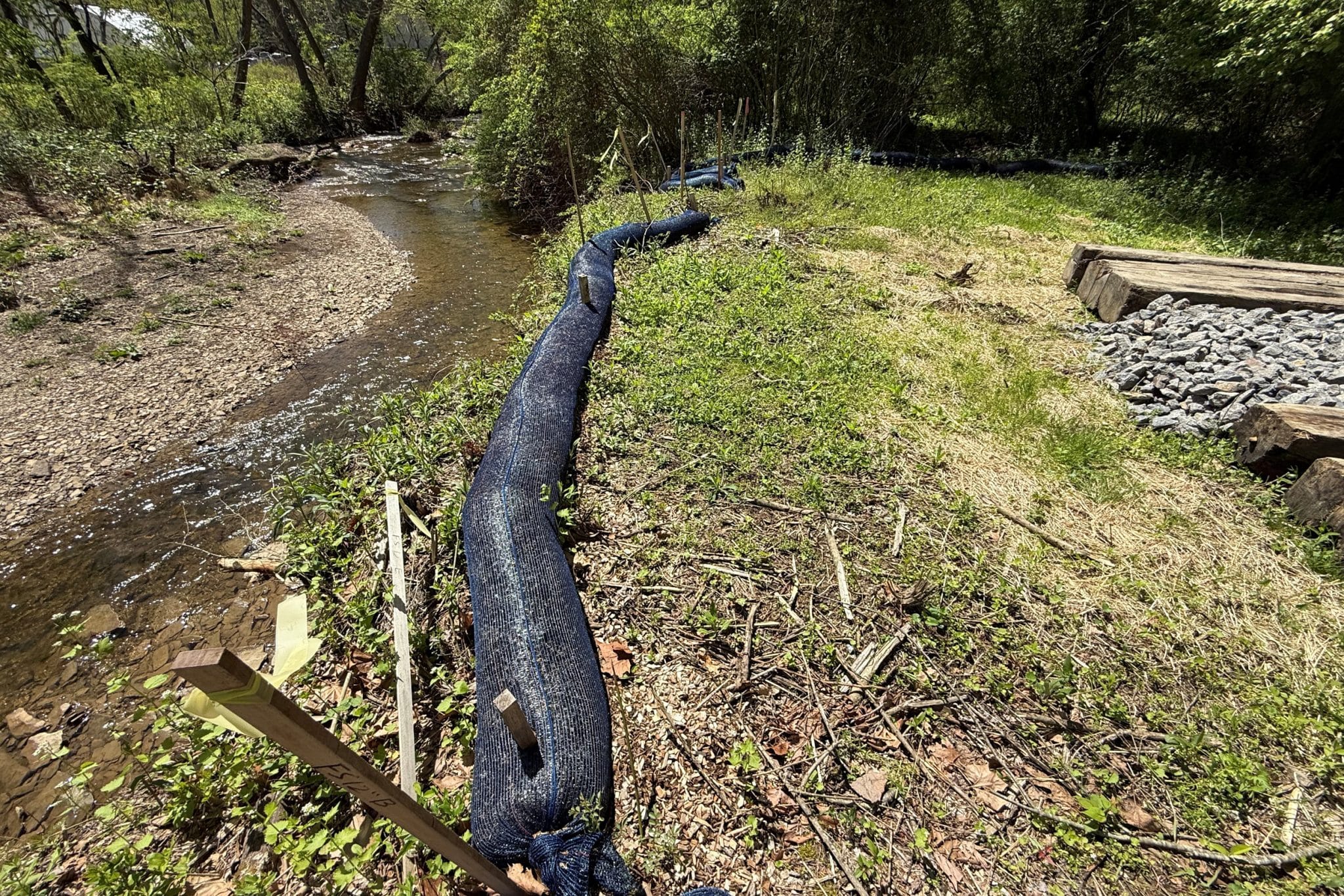This article originally appeared on Inside Climate News, a nonprofit, non-partisan news organization that covers climate, energy and the environment. Sign up for their newsletter here.
A natural gas company has surrendered its permits to pump water from a western Pennsylvania creek in a move welcomed by environmentalists fearful of rising industrial demand for surface water and the growing threat of climate change.
PennEnergy Resources asked the state’s Department of Environmental Protection in April to rescind its permits for 1.5 million gallons a day from the Big Sewickley Creek in Beaver County near Pittsburgh, saying the creek would not likely provide enough water for eight horizontal wells it plans nearby.
Years earlier, the company had requested to drain 3 million gallons a day from the main-stem creek and a million gallons from its north fork. DEP denied the application, citing risks to a fish, the southern redbelly dace, that the state classifies as threatened. The company modified its application, and in January 2024, the agency issued permits for a withdrawal of 1.5 million gallons a day.
But PennEnergy, a Pittsburgh-based independent oil and gas company, no longer wants the smaller amount, saying that changes in the stream flow would not provide enough water as required in its permits.
“We noted naturally occurring alterations of the stream-bed conditions making it unlikely that our approved withdrawal location would be viable to meet bypass flow conditions as specified in the permit ahead of the need for our well-development operations,” said Amanda Peterson, a PennEnergy spokeswoman.
Peterson declined to say if the company had found a new source of water. But she noted that each well uses between 9 and 18 million gallons for hydraulic fracturing operations, about two-thirds of which is recycled. She said the request to rescind the permits was a voluntary action and not a response to public pressure or instruction from regulators.
Across the country, the average hydraulically fracked gas or oil well uses about 4 million gallons of water, or about as much as New York City uses every six minutes, according to the American Petroleum Institute, an industry trade group. Opponents of fracking say water from surface sources such as creeks are the wrong use of a common and natural resource by a for-profit company.
Critics had urged PennEnergy to withdraw water from the nearby Ohio River or another larger waterway, not the Big Sewickley Creek. But the company first rejected that option, saying the creek fit its policy of using a withdrawal site as close as possible to its gas well pad, cutting truck traffic.
Advocates for the creek welcomed the company’s decision as a victory for the local environment.
“Big Sewickley Creek does not have sufficient flow, and other water sources should have been more thoroughly considered, especially prior to the clearing of mature forest, and the construction of a gravel pad in the creek’s most beloved recreational area,” Katie Stanley, president of the Big Sewickley Creek Watershed Association, said in a statement.
READ: The Cleanup Bill for the Fracking Boom Is Already Here in States Like Pennsylvania
There’s no evidence that the permit surrender reflected public opposition to the water-withdrawal plan, said the association’s treasurer, Rose Reilly. But volunteers had planned to monitor stream flow and told PennEnergy that it would be held accountable to its permit limits. “This may have weighed into their decision to rescind the permits,” Reilly said.
PennEnergy may not have fully grasped the creek’s flow and its back channels, she said. A significant portion of the stream bypasses the site in Beaver County where the water would have been withdrawn, Reilly said. After heavy rains early this year, some 70 percent of the stream flow bypassed the intake site, she said.
If the withdrawal had gone ahead, Reilly said, it would have reduced the creek’s water quality and the area’s water table, harming the habitat it offers, including for southern redbelly dace.
DEP spokesman Brandon Glass confirmed that PennEnergy voluntarily asked the agency to withdraw the permits. He said oil and gas companies “occasionally” opt out of permits.
PennEnergy’s conclusion that Big Sewickley Creek would not be a reliable water source could be followed by companies inside and outside the fracking industry as climate change upends rainfall patterns, predicted Emma Bast, a staff attorney at PennFuture, an environmental nonprofit.
Industrial water users, including fast-growing data centers, may feel less confident about water from surface sources after the drought of 2024. Heavy rains in the spring of 2025 have only added to climate unpredictability, Bast said.
“With climate change, and this variability increasing, I would not be surprised to see something like this happening more often,” she said.
Heather Hulton VanTassel, executive director of Three Rivers Waterkeeper, a nonprofit that advocates for water quality in the Allegheny, Monongahela and Ohio rivers and their watersheds in the Pittsburgh region, said many fracking companies withdraw water from nearby creeks but the proposed take by PennEnergy from Big Sewickley Creek was unusually large.
VanTassel predicted fracking in southwestern Pennsylvania will deplete waterways as companies vie for naturally flowing water and recycle less of it. “It’s a matter of time,” she said.






